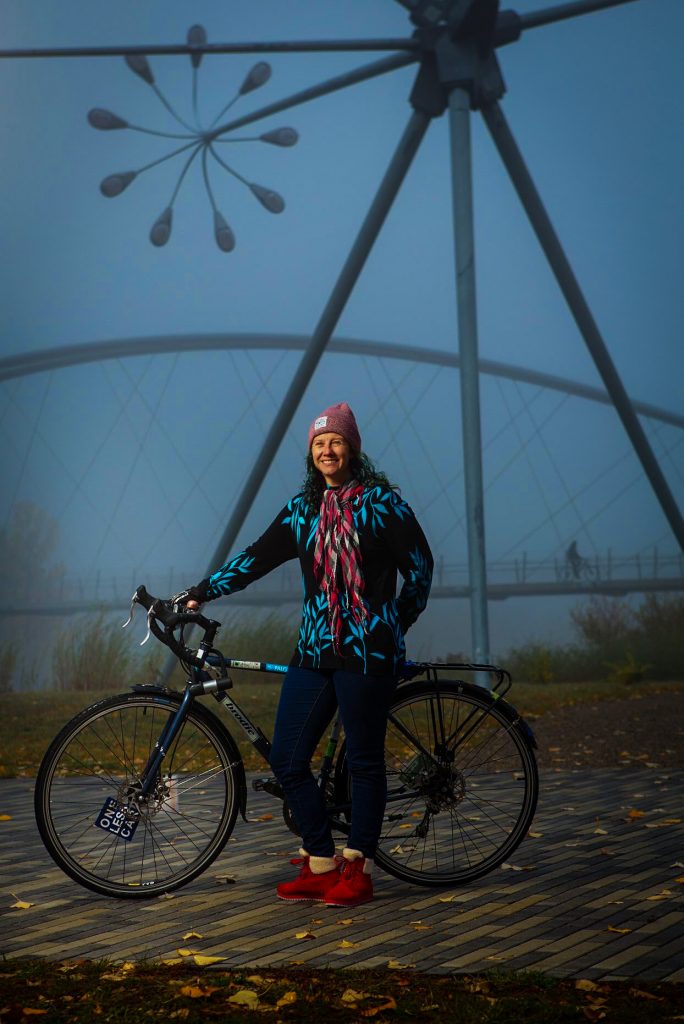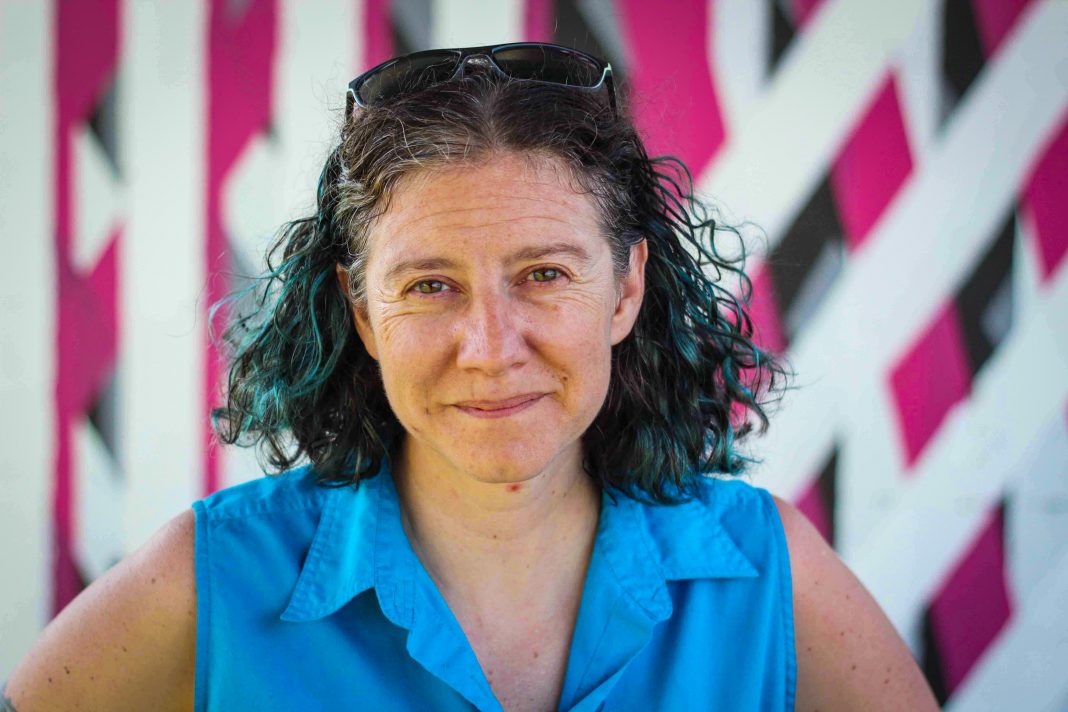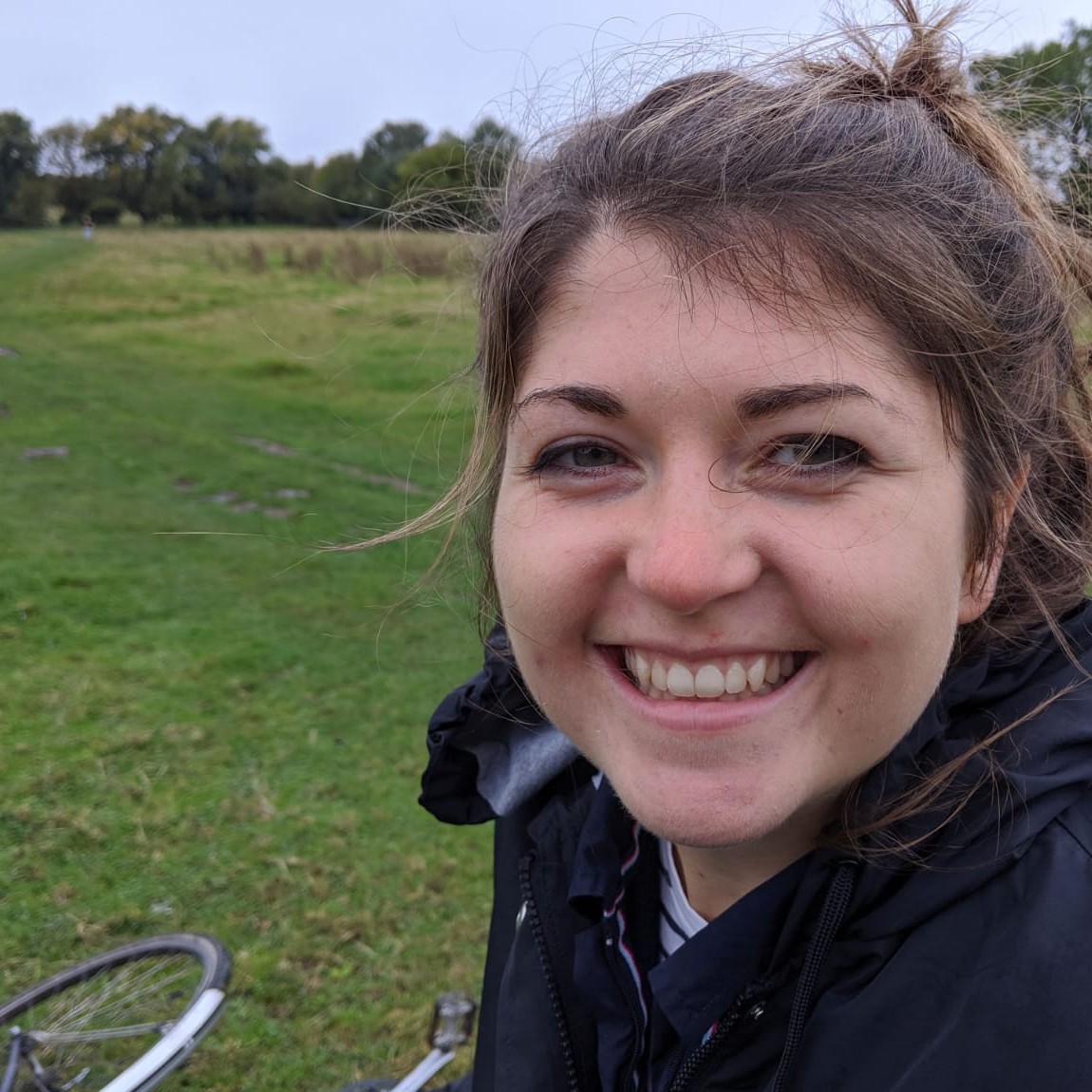Kimberley’s dangerous commute led her down a path where she would end up transforming Calgary into one of Canada’s cycling cities. She tells us about the journey, along with e-scooters dating, ‘sanity rides’ and how best to drive change.
Kimberley’s Story: Battling for the Bike
Commuting to work by bicycle, there was little infrastructure protecting Kimberley from near misses with trucks. “I was tired of my life being threatened, not always intentionally but usually through a lack of care.”
To express her anger, Twitter became Kimberley’s platform for action. “I was a quite a vulgar tweeter,” she admits, “I would call out my councillor and the mayor – I was cursing, yelling and shaking my fists everyday about almost getting hit by a truck.”
After shouting to the void, a local cycling advocacy group, Bike Calgary, reached out to her. ‘You know there’s a better way of doing this, right?’ ran the message from the club’s Vice President.
From there, Kimberley began volunteering with the group. “I’d found my people,” she explains, “I realised it wasn’t just me fighting but that there were others who wanted the same thing.”
This changed Kimberley’s approach to campaigning; instead of venting, she emphasised the safety concerns that constituents faced. “Just watching the difference in response was amazing,” she says.
Kimberley subsequently became the President of Bike Calgary, as well as working for Calgarians for Transportation Choice, Vision Zero Calgary, and Bicycle Belles YYC. Here she began the battle of securing bike tracks for downtown Calgary.
“We campaigned like crazy,” she recalls, “there were even campaign placards placed in businesses’ windows – we were running cycling tracks like a nominee for election.” The fight was for securing a pilot downtown network of cycle tracks – something which a few hard-nosed councillors were set against.
The tireless campaigning paid off, and the pilot was passed by one vote in 2014. It was Calgary’s first biking infrastructure downtown and was an instant hit – so much so that the city voted to make it permanent in 2016. You can read more about the story here*.
Today, Kimberley is a Director at Velo Canada Bikes which works on creating a strong national voice for cycling in Canada. Due to her energy in securing cycling infrastructure for Calgarians, she was awarded as Avenue Calgary’s Top 40 Under 40 in 2014.
Memorable Campaign Moments
Kimberley’s efforts transformed the streets of downtown Calgary by lining them cycle tracks – but advocating for such change meant she faced significant hostility. For all the times Kimberley was yelled at, she shares her favourite one.
“I remember being at a table during Calgary’s 2014 ‘Bike to Work’ breakfast, and this man came up to me and starting yelling”, explains Kimberley, “He said he didn’t understand why I needed all these tracks and why I was causing so many problems. It was very abrupt.”

Jump forward to next year’s ‘Bike to Work’ breakfast, and Kimberley found herself at the table talking to the same man. “He started apologising, he said his wife rode with him to the event because there were cycle tracks – I get it, he said. He understood that even though he didn’t need the cycle tracks, they were for his wife or kids,” she says. It was an encounter which reassured Kimberley that, despite the resistance, the campaigning was worthwhile.
Another memorable moment was the winning across of a councillor previously opposed to cycling infrastructure. “One community in his ward approached him, asking for a cycle track on their main street,” Kimberley recalls, “he sent one of his aides to the meeting to stir the pot, but when he realised that there were businesses and community representatives on board he immediately changed his tone.”
The popularity of that cycle track led to other constituents to request cycle tracks – of which he has supported. “Seeing a success story in your own context definitely helps win councillors over,” Kimberley says.
Calgary’s Corona Cycle Lanes Crisis
Kimberley’s battles for the bike are far from over. On her agenda at the moment is preventing the removal of Calgary’s covid-19 cycle tracks. It began when Kimberley was on a ‘sanity ride’ to check in with others during the first Covid-19 lockdown. Tweeting pictures of pinch points in the cycle lanes, the city acted quickly in widening the tracks to allow for social distancing. However, as winter approaches, Calgary has begun removing the lanes citing snow clearance as the reason.
“I’m pretty angry,” Kimberley exclaims, “it’s such a step backwards – Calgary was the first one out of the gate to put up these temporary lanes and now when other cities are leapfrogging us, we are here taking them out.”
Letters have already been sent to councillors and she’s begun rallying around a ‘Complete Streets’ campaign. In true Kimberley style, she says “I think it’s time I sit down and have a chat with my city councillor.”
E-Scooters: “Welcome Them With Open Arms”
Another current issue on Kimberley’s plate is the e-scooter community. Calgary is trialling three e-scooter operators, which has resulted in heat between bikers, runners and e-scooters clogging up the same lanes. Fears that e-scooters block the lanes, park poorly and alter the speed of the traffic abound.
However, Kimberley contends that e-scooters users should be embraced. “The argument shouldn’t be about who we are allowing on our little piece of space”, she states, “It should be about bringing e-scooters into the fold and demanding more space.”
With 35,000 unique e-scooter users within the first month, this is a significant number of voices who experienced the downtown network, possibly for the first time. E-scooters seem to have been a particular hit with couples in Calgary. Humorously, Kimberley notes why an e-scooter dates have taken off; “you’re pressed up against each other, balancing together – it’s almost like the e-scooter in Calgary is being used as foreplay!”
Kimberley’s Advice for Other CityChangers
Kimberley offers two main pieces of advice for other CityChangers out there. “The thing that advocates need more than anything else is voices,” stresses Kimberley, “there’s no point in building anything if the community doesn’t want it.” Securing support and creating a ground swell for cycling infrastructure is critical in bringing about change.
Secondly, successful campaigning requires a plan, rather than just complaints. “The best thing that advocates can do is go to the city with a solution,” states Kimberley. “Do some of the work ahead of time; speak to the community to find out where they would ride to and which roads need to be changed.” By approaching city councillors with a solution, the chances it will be listened to will be increased.
In a Nutshell…
Kimberley saw a problem and sought to fix it. Her record shows that getting involved and advocating for cycling infrastructure does led to change – even if there are some angsty breakfasts or prickly tweets along the way!


